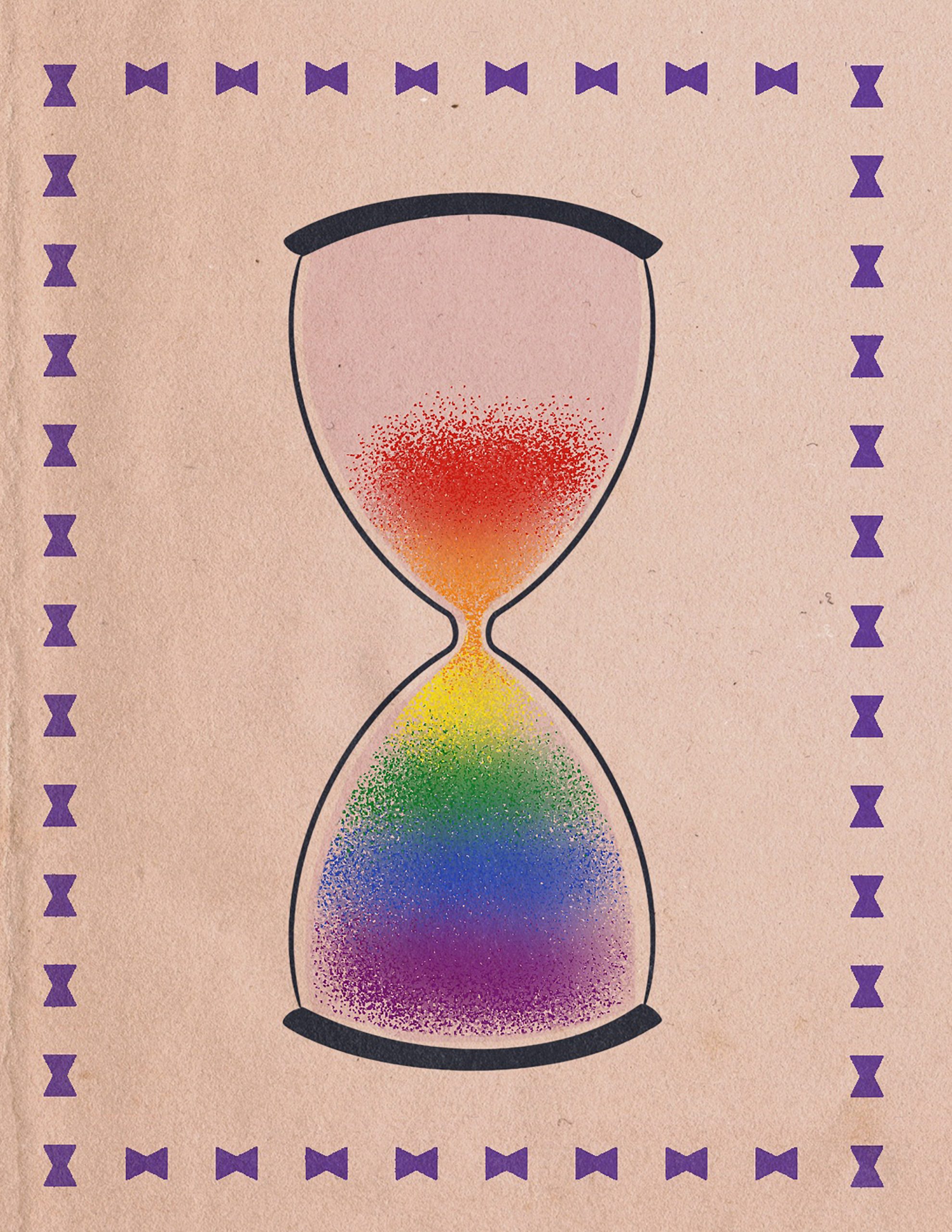Advice for broaching the conversation.
The act of telling your friends and family that you identify as LGBTQ+ can bring a plethora of emotions. For some, it can be an exciting moment of anticipation, and provide the feeling that a weight has been lifted. For others, it can lead to anxiety or a fear of rejection. For many, “coming out” can be a mix of all the above. How we choose to do it differs too; there’s the rip-the-bandaid-off approach, acting as soon as possible and telling everybody at once, or slow and steady–waiting a long time to find the right moment. Even when you’ve told everyone in your life, you may find yourself having to come out again, in new environments and to new people.
Disclosing your sexuality or gender is nuanced, individual and sometimes complicated whatever the age, but for those who grew up as part of a generation or in a place where there was less acceptance and visibility for LGBTQ+ people, the challenges can be heightened. Perhaps you don’t know anyone queer, perhaps it feels harder to tell people who have always known you to be a certain way – at least from the outside, or maybe you are concerned about a lack of understanding among your community. Change can be overwhelming, but there’s also a lot of wisdom out there for those coming out later in life.
- Only you know when you’re ready
Coming out is your decision, and should not be anyone else’s. According to the LGBTQ+ charity Stonewall, “there’s no right or wrong time to come out to your family”, for instance, and it’s important to come to the decision on your own terms rather than rushing it in the heat of the moment or in an argument. In fact, if you really need time to formulate your words, Stonewall suggest that you try writing it in a letter or an email, or else write down what you want to say first, before you say it aloud.
- Start with someone who feels safe
“Coming out” is a fairly catch all term, but you don’t have to start with everyone at once. Is there a colleague, close friend or even a therapist that you can trust to tell first and be both accepting and discreet? Having a guinea pig can show that its possible to be accepted. This person may be able to act as a support when you tell further people in your life, and also help you to practice dealing with questions that may come up…
- Expect questions
Questions from those close to you is pretty inevitable, says Jose Collazo, manager of the SAGE center in the Bronx. “Coming out later in life may bring up questions from family members (especially for younger kids) such as: ‘What does this mean for me?’ ‘What does this mean for our holiday celebrations?’ ‘What does this mean for where I’ll be living?’” he explains, but it’s your choice whether you want to answer some or all of them. If you can’t answer all, patiently explain that you’re still working that out.
- Remember, you’re not the only one
According to The Pew Research Certre, there is an average age that differnet types of people tend to come out: 18 for gay men, 21 for lesbians and 20 for bisexuals. However, there are plenty of people who come out later in life too, and 2.4 million people who identify as lesbian, gay, bisexual or transgender in America are over 60. Online and off there is a lot of literature about people who have come out a little later. There are TV shows like Transparent, and films like Beginners, as well as the recent and much acclaimed documentary A Secret Love, about a lesbian couple who come out in their 80s. Check out our list of books for understanding your sexuality better, too.
- Support is out there
If you need more material guidance or support, there are resources. You could contact your nearest LGBTQ+ centre, or SAGE—who advocate for LGBTQ+ seniors. There’s also a National Resource Centre. For legal issues, you could contact LAMBDA Legal. If you are a parent, you could consider joining PFLAG. When coming out at work, it’s important to know your rights. Earlier this year, in June, a law was finally passed through the Supreme Court to block anti-LGBTQ+ discrimination in the US workplace, so you are legally entitled to come out at work without meeting any prejudice. And finally, TalkSpace and Pride Counseling have suggestions for queer therapists – a good counsellor could be an important comfort.









